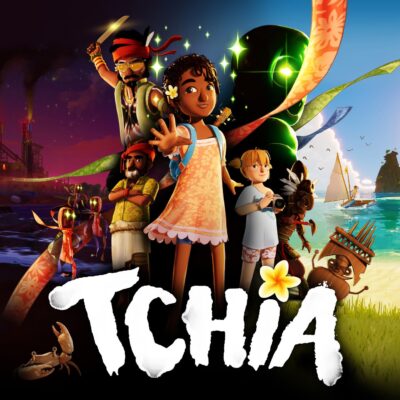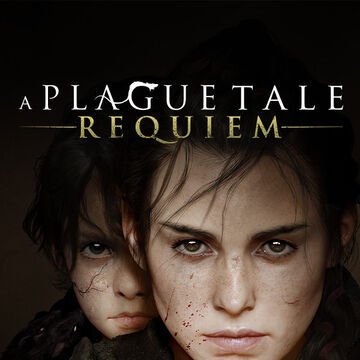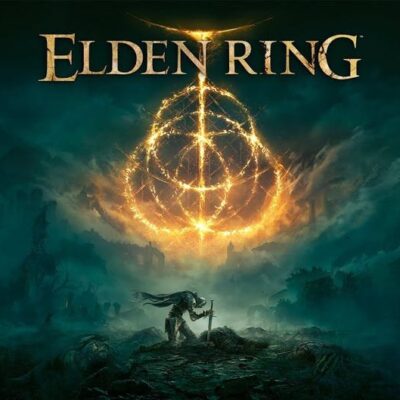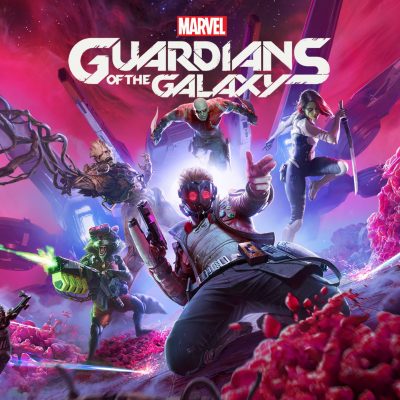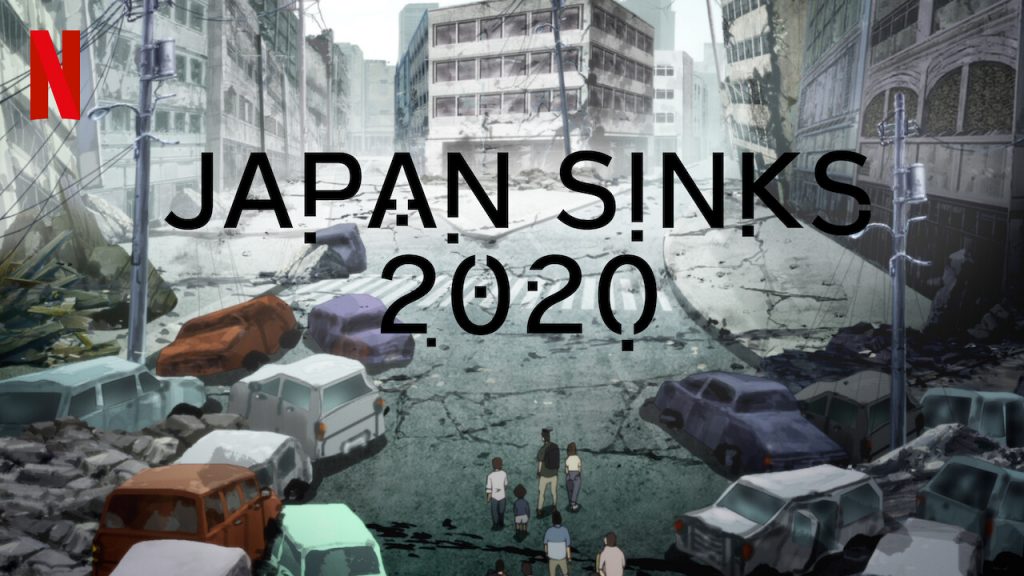
Author’s Note: It has been a really long time since I’ve written anything fandom related. This piece is definitely more like a review with sprinklings of my pure fan reactions here and there. (An actual fan reaction was unintelligible.) This ended up as more of an exercise while I searched for ideas. If there is any merit in it, hopefully my style of writing will come through at least.
It has been nearly a month since I watched Japan Sinks: 2020 and I am still haunted by the experience. After randomly binging the show one night about a week or two after it was released on Netflix, I am still trying to decide my ultimate feeling(s) toward this anime. In other words, I just need to talk about it to alleviate some of the PTSD I have been suffering since surviving all ten episodes, which believe me, is an achievement. Insert trophy bing here.
Japan Sinks: 2020 is about the sinking of the Japanese archipelago into the Pacific Ocean, as its title suggests. It is an updated version of the 1973 scifi novel titled Japan Sinks by Sakyo Komatsu. If the original novel was supposed to be a snapshot of the situation in Japan in the 1970s, this updated version is definitely on brand for 2020, not just in Japan, but around the world. Climate change; people skeptical of scientific authorities and what they read in the news; the deepening divisions in society; the need for interpersonal relationships during a disaster; darkness; death; destruction… sound familiar?
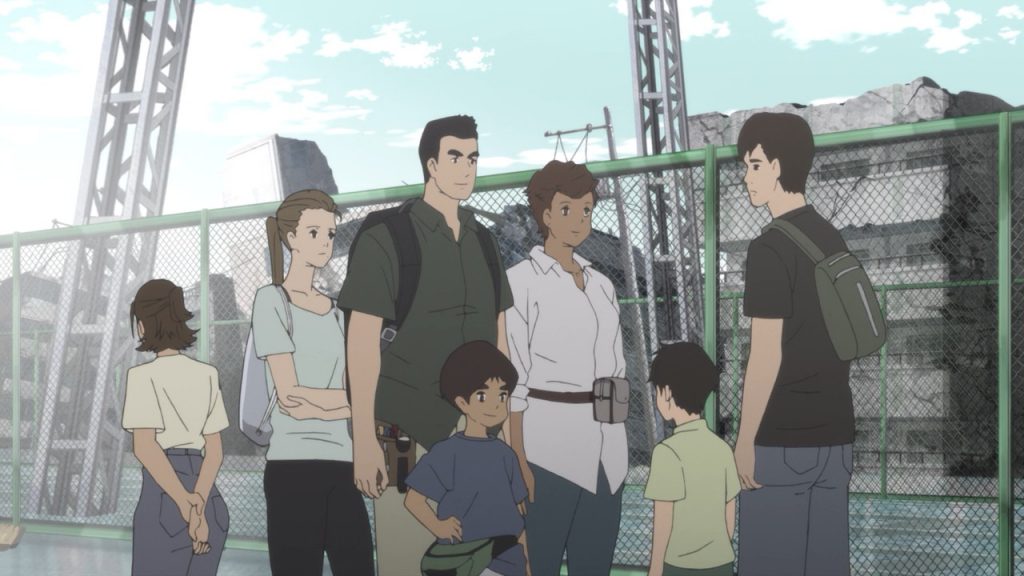
The story follows the Mutou family: rising track star Ayumu; worldly game-obsessed little brother Gou; their mom Mari, revealed later on to have once been a champion swimmer; their dad Kouichirou, who is handy with lights; and a handful of other survivors they meet along the way.
The harrowing tale begins at an after-school track meet where Ayumu and her team mates are practicing. An earthquake occurs as they wrap up. It’s a pretty big quake, but nothing the island nation can’t handle. All the trains stop for safety checks. The cellular service becomes clogged from people trying to check on others. The construction workers putting the final touches on a stadium are rattled but otherwise fine as they dangle over the large sign board they were installing. After everyone makes sure everyone else is okay, life resumes. No problem. In the changing room after practice, everyone’s phone starts going crazy with an national earthquake alert. You hear the tremor coming seconds later; you can almost feel the sub vibrations through the TV… Then, the mother of all earthquakes happen. From that moment on, viewers and the Mutou family alike are shoved violently down a rabbit hole that leads to a seemingly endless visceral nightmare.
This series holds nothing back. Everything is shown in raw graphic detail. After The Big One, the main characters struggle to locate each other as aftershocks and tsunamis threaten to worsen what is already a catastrophe. As the situation grows more dire, new friends are made and sometimes, just as quickly lost. The series is Game of Thrones-esque in that principle characters will be killed off early and killed off often.
By the middle of the narrative, we reach a sort of plateau in the chaos and find our remaining survivors taking shelter in what looks a lot like a cult compound in the middle of the countryside. These episodes differ from the others in that the threat of doom and gloom is temporarily diminished. This allows for important character building and an expansion of the story beyond the simple having to survive in a post-apocalyptic world plot. You could almost be fooled into believing that maybe the worst case scenario won’t materialize. However, it is hard to enjoy the moments of levity on offer because of the suspicious feel of this utopia. Indeed, all is not well in paradise. Eventually, the awkward tranquility comes to an abrupt dissolution that serves as a fair reminder not to get too attached to cast members as we race toward the climax.
After some tense family drama, important revelations, several chances to escape the doomed island, and the cataclysmic eruption of Mount Fuji, Japan finally sinks. Phew. No, just kidding. IT WILL GET WORSE.

In spite of the overwhelming odds stacked against them, Ayumu and her fellow companions somehow find the strength, courage, and determination to fight tooth and nail to make it through to the bitter end. Even though she sometimes comes across as a whiny brat and a reluctant heroine, you can’t help but cheer Ayumu’s fortitude and growing tenacity. Her brother Gou is even more amazing. He’s the youngest cast member, but also the coolest of all the survivors, easily rolling with whatever comes next and adapting on the fly. He possesses an unwavering belief in the future that sees him through the darkest moments and allows him to be the voice of optimism in an otherwise depressing disaster scenario. I want to be like him when I grow up.
To paraphrase Game of Thrones, what is sunk may never drown. Although there is one more curve ball to endure come the epilogue (predictable if you are familiar with Roland Emmerich’s “Day After Tomorrow”), the closing stages of the final episode are annoyingly positive compared to the utter horror and angst of the nine episodes preceding it. There is still hope for the future, both for our survivors and the sunken island nation. I don’t need hope after all of that trauma. I need a shrink!
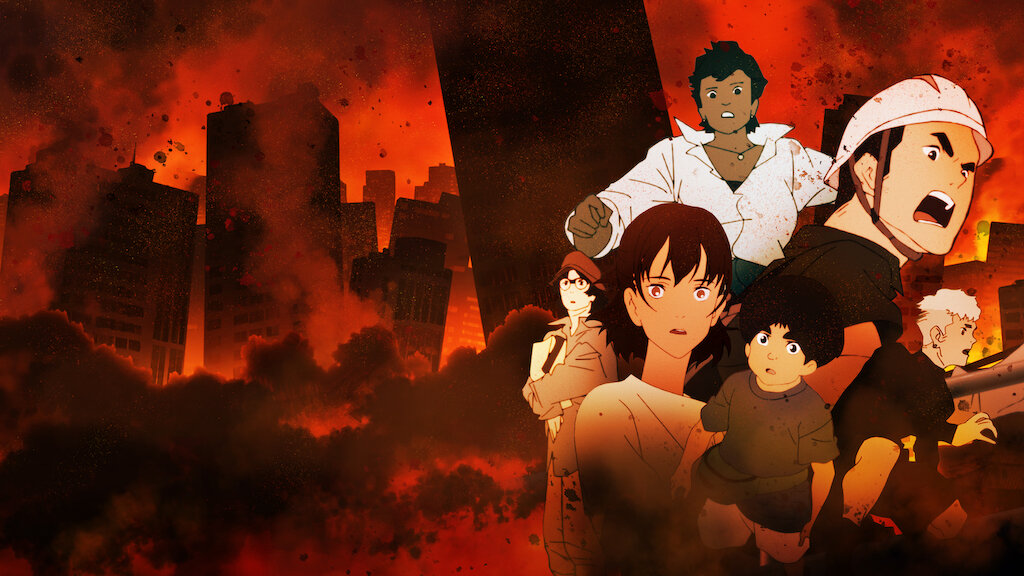
Japan Sinks: 2020 is the wildest emotional rollercoaster you could ask for in this year of years. It is a story full of unexpected twists and turns that will keep you on the edge of your seat. Expect to yell “WHAT?!” a lot. Be warned that this is not a show to watch with young children as there are a lot of disturbing images, drug use, sex, and attempted rape.
At times, the constant threat of death overshadows acts of true heroism and friendship. Moments of joy and light-heartedness are as fleeting as human life. It is an anime that provokes serious contemplation about the kinds of bonds we share with others especially during a crisis, the role of social media and the internet as tools to connect our world when all other forms of communication are cutoff, broad societal issues, and of course, the fate of humanity as a whole. Is there hope for our future too, or will we continue to watch our world subside beneath the waves of our shortcomings?
I survived Japan Sinks: 2020. If you think you have what it takes to survive, I do highly recommend this show. If after viewing it, you find yourself stressed out and needing to talk about it with someone, come find me. We can stress together.


